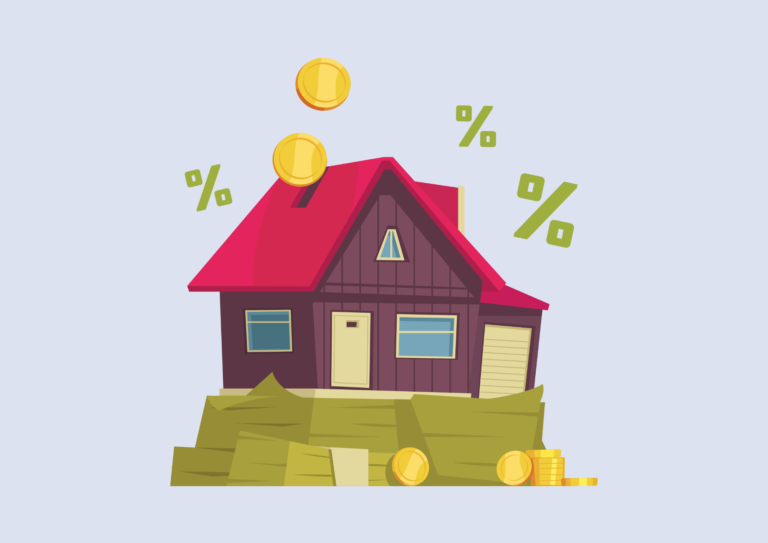A Comprehensive Guide to Property Capital Gains Tax.
Capital gains tax, or CGT, applies to the difference between the cost of acquiring or purchasing an asset and the cost of disposing of or selling it. Although we look at how CGT applies to a range of assets in our introductory guide to the fundamentals of capital gains tax, we’ll concentrate on what it means for real estate in this post.
What is meant by the term “disposal”?
When discussing capital gains tax, the term “disposal” or “disposing” of the asset is typically used. The fact that money does not even need to change hands in order to be subject to capital gains tax makes this a crucial point.
Selling your asset and giving it to a third party who isn’t your spouse, civil partner, or charity are both examples of disposal. Then use the market value at the time to calculate the ‘gain’.
In other words, even if you did not sell anything, you may still be subject to Capital Gains Tax
Check out: Do I need to pay tax on my side-hustle hobby business?
If I inherit property, will I be subject to capital gains tax?
When you inherit a property, you typically pay inheritance tax instead of capital gains tax, but if you sell the property later, you might have to pay capital gains tax.
Will I be required to pay capital gains tax if I sell my home?
Not all of your assets are deemed ‘chargeable’ and subject to Capital Gains Tax, therefore you will not usually be required to pay it if you sell your primary residence. You may have to pay capital gains if you dispose of:
-
A property that is not your main residence.
-
If you rent out your main home (excluding lodgers), utilize it for business, or have a large property (5,000 square meters or more), you may be eligible.
-
Commercial property is one example of a business asset.
How much will I have to pay in capital gains tax on my property?
Capital Gains Tax is calculated as a percentage of the profit you make when you sell an asset. The rate varies depending on the type of asset you must pay tax on and the rate of income tax you ordinarily pay. Basic rate taxpayers are required to pay 18% of their profits from residential property. Higher-rate taxpayers pay 24% on disposals after April 6, 2024 (or 28% before then).
Read Also: How to reduce tax on your Holiday let rental: A Comprehensive guide
How should I report capital gains?
HMRC will not automatically bill you for any chargeable gains, so it is your responsibility to report and pay tax on them. Failure to declare or pay taxes on time might result in significant penalties! The way you declare a chargeable gain for Capital Gains Tax is determined on what you need to report.
Assets other than residential property
-
If you typically file a Self Assessment tax return, you can report these.
-
The gain must be reported by December 31st of the tax year after the disposal.
-
You must pay any Capital Gains Tax you owing before January 31st.
For example, a chargeable gain realized during the 2023/24 tax year (6th April 2023 – 5th April 2024) must be reported by December 31, 2024, and tax paid by January 31, 2025.
How can I record gains if I do not usually file a Self Assessment tax return?
If you are not registered for Self Assessment, you can report a chargeable gain via HMRC’s real-time online Capital Gains Tax Service. The dates are the same as those for reporting and paying under Self Assessment.
Special regulations for reporting chargeable gains on residential property.
The regulations for reporting chargeable gains on the disposal of residential property differ from those for other assets.
-
Gains on residential property cannot be reported through the real-time Capital Gains Tax Service or Self Assessment.
-
You must disclose any gain within 60 days of disposal.
Failure to disclose the gain within 60 days may result in penalties and interest on the balance owed. To open an online CGT on UK property account, enter your Government Gateway ID. If you are unable to use this service, you can request a printed form from HMRC.
What details do I need to provide to CGT?
To record a gain, you’ll need to calculate some crucial facts, such as:
-
The price at which you purchased and sold the asset. If the asset was transferred for free or if the disposal was significantly above or below market value, you must use its market value.
-
Evidence of how you determine market worth. If HMRC disagrees with your assessment, they have the option to challenge it and make their own.
-
The dates of acquisition and disposition.
-
Any expenses incurred during the purchase or disposal, including legal fees, appraisal costs, and agent fees.
-
The expense of any upgrades or refurbishments.
-
All of this is supported by documentation.
If you are looking for an accountant to help you with your queries related to your business accounts, Call at 020 35765107 or send a message to book a free consultation. Learn more about our online accounting services and pricing.
Note: It must be noted that the information provided in all our blogs are solely for the awareness purposes and are designed with the intention to create an ease for the reader to understand the rules and their importance. However, it should never be considered as an ultimate replication of rules. RezEx Accountants (RezEx Ltd) does not own any responsibility for any unpleasant event that may arise due to misinterpretation of a specific part or whole of the information.




